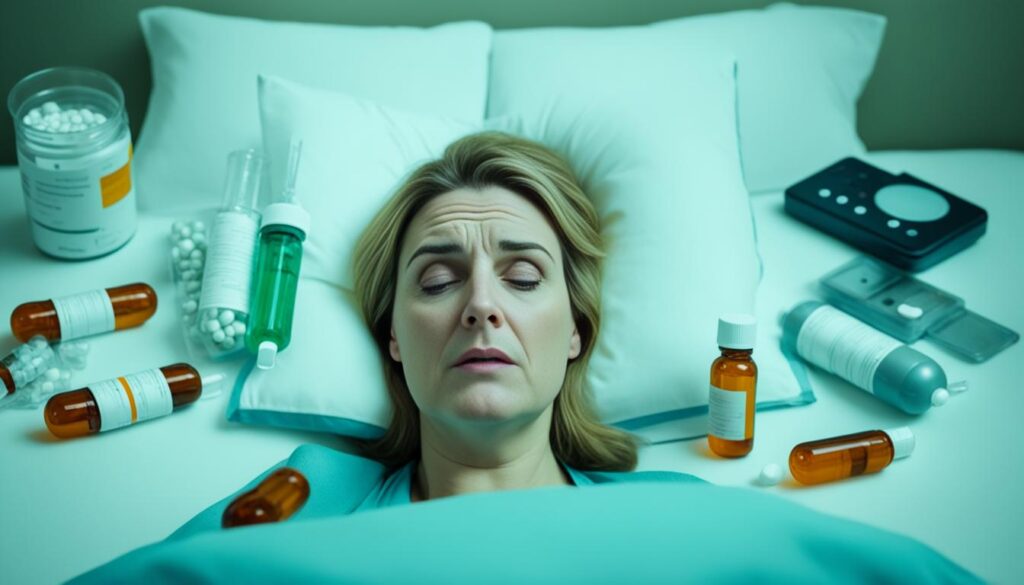Did you know that the topic of masturbation and its impact on physical strength sparks curiosity and debate among many? Whether you’ve questioned whether self-pleasure affects your strength or have heard various rumors about the relationship between masturbation and muscle strength, it’s time to separate fact from fiction.
Effects of Masturbation on Strength
What Happens During Masturbation?
During masturbation, you experience a range of sensations and physiological responses that contribute to sexual pleasure and satisfaction. It all starts with arousal and desire, which can be triggered by sexual thoughts, fantasies, sensory stimuli, or dreams.
It’s important to find a private and comfortable environment where you feel safe and relaxed. This helps create a conducive atmosphere for sexual exploration and self-pleasure.
Once you’re in the right mindset, the stimulation phase begins. This involves touching and caressing your own body, particularly the genitals. You can use your hands, fingers, or sex toys to stimulate yourself.
As stimulation intensifies, your body goes through various changes. Blood flow increases to the genital area, leading to an erection in males and engorgement of the clitoris and vaginal walls in females. Your heart rate and breathing may also quicken, and muscles throughout your body may tense up.
With continued stimulation, many individuals experience orgasm. This is the peak of sexual pleasure, accompanied by the release of built-up sexual tension and intense sensations of pleasure. Orgasms can vary in intensity and duration, depending on the individual.
After orgasm, your body gradually returns to its pre-arousal state. You may experience feelings of relaxation, contentment, or even sleepiness during what is known as the resolution and afterglow phase.
Once you’re done, it’s important to take care of clean-up. Whether it’s wiping with a tissue or washing yourself, ensuring cleanliness is essential for maintaining good personal hygiene.
Finally, many individuals engage in relaxation techniques such as deep breathing or gentle stretching to wind down after masturbation. This helps promote a sense of calm and physical well-being.
Remember, everyone’s experience with masturbation is unique, and what happens during masturbation can vary from person to person. It’s important to explore your own desires and comfort levels while prioritizing your physical and mental health.
Does Male Masturbation Cause Weakness?

The claim that male masturbation causes weakness is a common myth, but there is no scientific evidence to support it. In fact, male masturbation is a normal and healthy sexual activity that can have several potential physical and mental health benefits.
One of the physical effects of male masturbation is the strengthening of pelvic floor muscles. When you engage in self-pleasure, you activate and exercise these muscles, which can contribute to better urinary control and sexual function.
Additionally, male masturbation can boost the immune system. It has been suggested that the release of endorphins and the increased blood flow during arousal and orgasm can enhance the functioning of the immune system, helping to fight off infections and illnesses.
Furthermore, masturbation can provide pain relief. The release of endorphins during orgasm can have analgesic effects, helping to alleviate physical discomfort such as headaches, menstrual cramps, or general muscle tension.
When it comes to mental and emotional effects, male masturbation is known to reduce stress. It provides a pleasurable and relaxing activity that can help release tension and promote a sense of calm and well-being.
In addition, masturbation is associated with improved sleep. The release of endorphins and the relaxation that follows orgasm can contribute to a more restful and satisfying sleep, helping you wake up feeling refreshed and rejuvenated.
Moreover, male masturbation is linked to enhanced mood. The release of endorphins and the pleasurable sensations experienced during self-pleasure can elevate mood and promote feelings of happiness and contentment.
In summary, the belief that male masturbation causes weakness is often based on cultural or societal taboos rather than scientific evidence. In reality, masturbation is a safe and normal part of human sexuality that does not deplete the body’s energy or nutrients. On the contrary, it can have positive physical and mental health effects, including strengthening pelvic floor muscles, boosting the immune system, providing pain relief, reducing stress, improving sleep, and enhancing mood.
| Physical Effects | Mental and Emotional Effects |
|---|---|
| – Strengthening pelvic floor muscles | – Reducing stress |
| – Boosting the immune system | – Improving sleep |
| – Providing pain relief | – Enhancing mood |
Does Female Masturbation Cause Weakness?

Female masturbation, like male masturbation, does not cause weakness or any negative health effects. It is a normal and healthy sexual activity that many women engage in throughout their lives.
Female masturbation can have various physical and mental health benefits, including:
- Strengthening pelvic floor muscles: Masturbation can help improve pelvic floor health by engaging and toning these muscles.
- Providing pain relief: Masturbation can release endorphins, natural pain-relieving hormones, which may help alleviate menstrual cramps or other types of pain.
- Reducing stress: Engaging in self-pleasure can promote relaxation, reduce stress levels, and increase overall well-being.
- Improving mood: Masturbation can release dopamine and oxytocin, the so-called “feel-good” hormones, which can enhance mood and promote a sense of happiness and satisfaction.
- Enhancing sexual functioning: Masturbation can help individuals explore their own bodies, better understand their sexual preferences, and communicate their desires with their partners.
The belief that female masturbation leads to weakness is often based on myths, cultural taboos, or moral beliefs. It is important to understand that masturbation is a safe and normal activity that can empower women and promote self-love and body positivity.
Remember, the key is to engage in masturbation in a way that feels comfortable, consensual, and pleasurable for you.
“Masturbation is a natural and healthy expression of your sexuality. It’s time to debunk the myth that it causes weakness and embrace the benefits it can bring to your physical and mental well-being.” – Dr. Emily White, Sexologist
Myths About Masturbation and Weakness
There are numerous myths and misconceptions surrounding masturbation, particularly in relation to weakness. These myths are often rooted in cultural, religious, or societal beliefs and can lead to unnecessary shame, guilt, and misinformation. It is important to debunk these myths and understand the truth about masturbation.
Myth 1: Masturbation causes physical weakness.
Fact: Masturbation does not cause physical weakness. This belief is not supported by scientific evidence. Masturbation is a normal and healthy sexual activity that does not deplete the body’s energy or nutrients.
Myth 2: Masturbation leads to mental weakness or insanity.
Fact: Masturbation does not lead to mental weakness or insanity. This myth is based on cultural taboos rather than scientific fact. Masturbation is a personal and private activity that does not have any negative impact on mental health.
Myth 3: Masturbation causes sexual dysfunction.
Fact: Masturbation does not cause sexual dysfunction. In fact, it can have positive effects on sexual functioning by enhancing arousal, improving sexual confidence, and promoting self-exploration and communication with partners.
Myth 4: Masturbation results in physical illnesses.
Fact: Masturbation does not result in physical illnesses. This is a misconception that has no scientific basis. Masturbation is a safe and healthy sexual activity that does not pose any risk to physical health.
Myth 5: Masturbation is only for single people.
Fact: Masturbation is not only for single people. It is a normal and healthy sexual activity that can be enjoyed by individuals in relationships as well. Masturbation can be a pleasurable and intimate experience for both individuals and can enhance sexual satisfaction within a relationship.
“It is important to debunk these myths and understand the truth about masturbation.”
Moderation and Context
Like any activity, excessive masturbation can potentially have negative consequences, such as physical discomfort or interfering with daily life and responsibilities. However, it is important to note that these negative consequences are more about moderation and individual circumstances rather than a direct link between masturbation and weakness.
If someone feels that their masturbation habits are excessive and starting to interfere with their daily life, relationships, or overall well-being, it may be helpful to seek support or counseling. Seeking support or counseling can provide individuals with guidance, resources, and strategies to establish a healthier balance and prioritize mental and physical health.
Importance of Moderation and Individual Needs
“Moderation in all things” is a saying that holds true even when it comes to masturbation. It is essential to understand that what may be excessive for one person may be perfectly healthy for another. Factors such as personal preferences, cultural background, and physical health can all play a role in determining individual needs and boundaries.”
By recognizing the need for moderation and seeking support when necessary, individuals can ensure that masturbation remains a positive and enjoyable aspect of their lives without compromising their overall well-being.
Remember, self-care and self-pleasure are important aspects of a healthy and fulfilling life. It’s all about finding a balance that works for you.
| Positive Aspects of Moderation | Negative Consequences of Excessive Masturbation |
|---|---|
|
|
Masturbation Side Effects: Fact or Fiction?
There are several misconceptions about the side effects of masturbation that have no basis in reality. These false beliefs can lead to unnecessary worry and anxiety. Let’s separate fact from fiction and debunk some common myths:
- Losing Sensitivity: It is true that some individuals may experience temporary numbness or decreased sensitivity during or after masturbation. However, this is usually due to individual technique or underlying health issues, not masturbation itself.
- Death Grip Syndrome: This term refers to a situation where individuals have a tight and intense grip during masturbation, leading to desensitization and difficulty in experiencing pleasure with a partner. While it is not a medical condition, it can be addressed by adopting a gentler technique over time.
- Vaginal Dryness: Contrary to popular belief, masturbation does not cause vaginal dryness. Dryness can be attributed to various factors such as stress, medication, or underlying health conditions, but not masturbation.
It is important to separate fact from fiction and not be influenced by false information when it comes to the side effects of masturbation.
Remember, masturbation is a natural and healthy sexual activity that does not have any significant negative side effects. Don’t let myths and misconceptions prevent you from enjoying the pleasure and benefits of self-pleasure.
Debunking the Myths
Let’s take a closer look at some of the myths surrounding masturbation side effects:
| Myth | Reality |
|---|---|
| Masturbation causes loss of sensitivity. | Temporary numbness or decreased sensitivity can be related to technique or underlying health issues, not masturbation itself. |
| Masturbation leads to death grip syndrome. | Death grip syndrome is not a medical condition but can be addressed by adopting a gentler technique. |
| Masturbation causes vaginal dryness. | Vaginal dryness is not caused by masturbation but can be influenced by other factors such as stress or medication. |
By debunking these myths, we can better understand the true effects of masturbation and enjoy a healthy and fulfilling sexual life.
Masturbation Myths and Realities
While there are numerous myths and misconceptions surrounding masturbation, it’s crucial to separate fact from fiction and rely on scientific evidence. Let’s debunk some common misconceptions:
- Myth: Masturbation causes prostate cancer.
- Myth: Masturbation is addictive.
- Myth: Masturbation relieves period cramps.
- Myth: Masturbation is unsafe during pregnancy.
- Myth: Masturbation can cause injury.
- Myth: Masturbation lowers libido.
- Myth: Masturbation decreases sperm count.
- Myth: Masturbation lowers testosterone levels.
Reality: There is conflicting research on the connection between masturbation and prostate cancer. Some studies suggest a potential decrease in risk, while others show no significant association. More research is needed to draw definitive conclusions.
Reality: The American Psychological Association does not recognize masturbation as an addiction. While individuals may have varying levels of sexual desire, masturbation itself is a normal and healthy sexual activity.
Reality: Masturbation can actually help relieve menstrual cramps. The pleasurable sensations and release of endorphins during orgasm can provide temporary pain relief.
Reality: Masturbation is generally safe during pregnancy unless there are certain medical conditions that restrict sexual activity. However, it’s always best to consult with your healthcare provider to ensure the well-being of both you and your baby.
Reality: While injury during masturbation is unlikely, it’s important to practice safe and gentle techniques. Avoid using excessive force or objects that may cause harm to the genital area.
Reality: Masturbation does not directly impact libido. Sexual desire and arousal can be influenced by various factors such as stress, hormones, and individual preferences.
Reality: Masturbation has a minimal effect on sperm count. The body continuously produces sperm, and regular ejaculation through masturbation or sexual intercourse helps maintain healthy sperm levels.
Reality: While testosterone levels may temporarily rise during sexual arousal and orgasm, masturbation has a minimal and temporary effect on overall testosterone levels. The body regulates testosterone production based on individual needs.
It’s important to be well-informed and rely on scientific evidence when it comes to the effects of masturbation. By debunking these myths, we can promote a healthier and more positive understanding of self-pleasure.
Conclusion
In conclusion, masturbation is a normal and healthy sexual activity that does not cause weakness or any serious health issues. It is a safe and private way to explore your sexuality and can have several physical and mental health benefits. Debunking the myths and misconceptions surrounding masturbation is crucial in promoting a more positive and informed attitude towards self-pleasure.
By understanding the facts and debunking these myths, you can embrace masturbation as a natural and healthy activity. It is important to recognize that masturbation does not deplete your energy or nutrients, nor does it lead to weakness. Instead, masturbation can strengthen your pelvic floor muscles, boost your immune system, provide pain relief, reduce stress, improve sleep, enhance mood, and promote better sexual functioning.
Take the time to educate yourself about the realities of masturbation and challenge the cultural and societal taboos that may have influenced your beliefs. Remember that masturbation is a personal and private activity, and you should engage in it only if you feel comfortable and consensual. Embrace the facts, debunk the myths, and embrace masturbation as a normal and healthy part of your sexual wellness journey.
Thank you for taking the time to read this article, and we hope it has provided you with valuable insights and information. Stay informed, stay empowered, and enjoy the benefits of a positive and healthy approach to masturbation.
FAQ
Does masturbation decrease strength?
No, there is no scientific evidence to support the claim that masturbation causes weakness or any serious health issues. Masturbation is a safe and normal sexual activity that does not have a negative impact on physical strength.
What happens during masturbation?
During masturbation, individuals experience sexual arousal, followed by stimulation of their own genitals for sexual pleasure. This can involve touching and caressing the genitals using hands, fingers, or sex toys. The body goes through physiological changes, including increased blood flow to the genital area, muscle tension, and increased heart rate and breathing. With continued stimulation, many individuals experience orgasm, followed by feelings of relaxation and satisfaction.
Does male masturbation cause weakness?
No, male masturbation is a normal and healthy sexual activity that does not cause weakness. In fact, it can have several potential physical and mental health benefits, including strengthening pelvic floor muscles, boosting the immune system, providing pain relief, reducing stress, improving sleep, and enhancing mood.
Does female masturbation cause weakness?
No, female masturbation is a normal and healthy sexual activity that does not cause weakness. It can have various physical and mental health benefits, including strengthening pelvic floor muscles, providing pain relief, reducing stress, improving mood, and enhancing sexual functioning.
What are the myths about masturbation and weakness?
There are common myths that masturbation leads to physical weakness or mental weakness. However, these beliefs are not supported by scientific evidence. Masturbation does not cause weakness, sexual dysfunction, or physical illnesses. It is a safe and normal activity that does not have negative effects on strength.
What is the importance of moderation and context in masturbation?
Excessive masturbation can potentially have negative consequences, such as physical discomfort or interfering with daily life and responsibilities. It is important to find a balance in one’s masturbation habits and prioritize mental and physical health. If someone feels their masturbation habits are negatively impacting their life, seeking support or counseling may be helpful.
What are the side effects of masturbation?
There are several misconceptions about side effects of masturbation. While it is possible to experience temporary numbness or decreased sensitivity, this is usually related to individual technique or underlying health issues. Other myths, such as “death grip syndrome” and vaginal dryness, are not supported by scientific evidence.
What are the common myths and realities about masturbation?
There are several myths surrounding masturbation, such as the belief that it causes prostate cancer, addiction, or lowers testosterone levels. However, scientific research shows conflicting results on these topics. Masturbation is safe and does not directly impact prostate health, addiction, or testosterone levels.
What is the conclusion about masturbation and strength?
Masturbation is a normal and healthy sexual activity that does not cause weakness or any serious health issues. It is important to understand the facts and debunk the myths surrounding masturbation. By doing so, we can promote a more positive and informed attitude towards self-pleasure.






